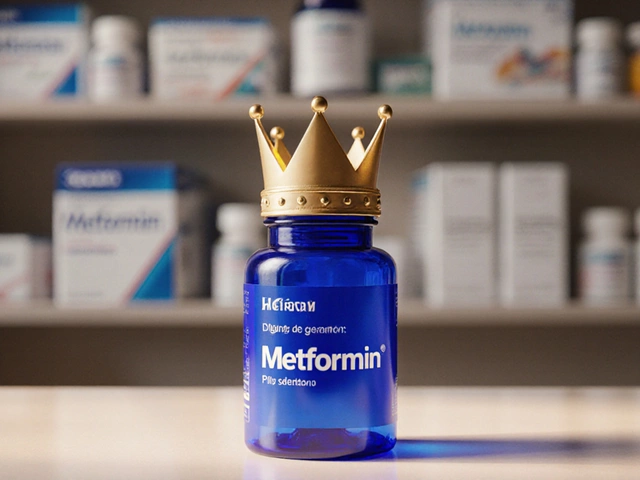Who knew a new knee could mess up your bathroom schedule? Lots of people wake up from knee surgery ready to tackle rehab, only to get sidetracked by the dreaded waiting game: When will I finally poop? It’s not exactly a topic you shout across the dinner table, but this is more common (and annoying) than most folks expect. Pain meds, anesthesia, laying in bed, even the anxiety—your digestion can stall for days. Some people wait three, four, even five days before they go. And honestly? It’s uncomfortable, sometimes painful, and the longer it drags on, the more worried you get.
Why Does it Take So Long to Poop After Knee Surgery?
Let’s break it down: you head into surgery, likely fast the night before, then anesthesia shuts things down. Your body doesn’t just bounce back when you wake up. Bowel movements depend on muscle activity and nerves, and anesthesia keeps yours sluggish. Strong painkillers like oxycodone or morphine, which are standard after knee replacement, deliver comfort for your knee but almost always slow your gut. A 2023 review in the Journal of Orthopaedic Science found that more than half of total knee replacement patients had constipation lasting over three days. That might not sound dramatic until you’re the one pacing the hospital halls, feeling more bloated by the hour.
Add in a diet of bland crackers, less movement, low water intake, and your belly acts like a lazy roommate who refuses to clean up. The gut’s natural rhythm—called peristalsis—works best when you’re walking, eating fiber, and drinking fluids. Surgery, bed rest, and stress hit the brakes on all that. Constipation isn’t just uncomfortable; severe cases can even keep you hospitalized longer. A study by the American Academy of Orthopaedic Surgeons flagged post-op constipation as a reason for delayed discharge.
Here’s the double trouble: some folks don’t want to eat after surgery because they feel nauseous, and the hospital menu isn’t helping. But if you’re barely getting any calories, your intestines have even less reason to keep things moving. Let’s also be blunt: the anxiety you feel about your recovery and the pain itself can make things worse. Stress hormones actually slow down bowel function. No wonder your poop is stuck in the slow lane.
What’s Normal—in Real Numbers—and When Should You Worry?
You’re not alone if you haven’t had a decent bowel movement for several days after knee surgery. But how long is too long? The truth: most people poop within three to five days after their operation, but some go up to a week. If it’s been over five days with no sign of action, talk to your nurse or surgeon. You shouldn’t ignore symptoms like severe belly pain, vomiting, or if your belly swells up a lot. These are red flags and need quick checks for things like bowel obstruction.
Check this table for common timelines and when to call for help:
| Days After Surgery | What’s Typical? | When To Worry |
|---|---|---|
| 1-2 Days | No poop; mild bloating normal | If severe, sharp pain or vomiting |
| 3-5 Days | First poop may happen; relief coming | If pain, swelling, or fever |
| 6-7 Days | Some still waiting; time to act! | Call your doctor, especially if discomfort worsens |
Fun fact: hospital staff will actually ask you if you’ve pooped—sometimes at every shift. It’s not just nosiness; they need to know so they can step in before your gut goes from slow to stopped. Many people underestimate how gas, cramping, or a full stomach can mess up physical therapy or just make you miserable. And if you have a history of digestive issues, like IBS or chronic constipation, let your care team know right away; you’ll probably need extra help sooner than most.

How to Get Your Bowels Moving Again: Tips That Actually Work
Gut trouble after knee surgery doesn’t have to drag on. Unless your doc says otherwise, there are real steps you can take to kickstart things. Start with fluids—water, herbal teas, clear broths. Aim for at least eight cups a day unless your doctor limits your fluids for another reason. Next, ask if you can get up and move, even if it’s just a few steps or standing at your bedside with help. That gentle movement helps your intestines wake up.
Fiber matters, but go slow. High-fiber foods like fruits (think prunes, berries, apples), veggies, and whole grains make a difference, but they work best when paired with enough water. Ever heard of the “Prune Juice Challenge”? Some people swear by drinking a glass in the morning to get things moving. Oatmeal for breakfast or a banana as a snack can be kind on your gut, too.
- Stay hydrated: Water, herbal teas, clear juices.
- Move if you can: Short walks, standing, chair exercises.
- Ask for stool softeners or gentle laxatives: Many docs prescribe docusate or senna post-op as routine.
- Try warm liquids: Some folks find coffee or a mug of warm water before breakfast works wonders.
- Avoid too much cheese, processed snacks, or red meat right after surgery; they can slow you down even more.
Pain meds are a double-edged sword. They help you recover, but nearly all narcotics severely slow your bowels. If you can swap to acetaminophen (paracetamol) or an NSAID like ibuprofen earlier, ask your surgeon. Never just stop meds on your own, but a conversation about downgrading can help. Another overlooked tip? Don’t hold it! If you get the urge to go, take advantage now. Holding stool only makes things harder—literally and figuratively.
Some hospitals use a stepwise approach: first they offer stool softeners, then mild stimulants, and finally, if needed, stronger options like suppositories or enemas. If things still aren’t moving, they might check for an underlying problem. Remember, don’t be embarrassed to bring up bowel issues. Your care team’s heard it all before, and a quick fix early on is easier than dealing with a stubborn gut days down the line.
When to Call for Help and Busting Myths
Some people tough it out, waiting ages for nature to take its course. But waiting too long can turn a simple case of constipation into a bigger health problem. If you go more than five or six days without a bowel movement after knee surgery—poop after knee surgery is nothing to joke about—you should definitely ask for help. Don’t ignore belly pain that keeps getting worse, bloating that won’t go away, blood in your stool, or nausea that has you retching. These issues could mean more than regular post-op constipation and need a quick medical look.
Don’t buy into myths like “holding it will train your bowel” or “eating less helps fix constipation.” In reality, refusing to eat or drink only makes constipation worse, and holding back can cause stool to dry out. Laxatives aren’t dangerous if your doctor prescribes them, but using them too much when not needed can mess with your natural rhythm. Probiotics—like the stuff in some yogurts—can help after you start eating again but aren’t a magic fix. And those online posts pushing detox teas or laxative cleanses? Skip them. They’re not safe right after surgery and can leave you dehydrated or trigger unwanted side effects.
If you’ve struggled with constipation before surgery, say something at your pre-op visit. Your care team can plan ahead, maybe starting a bowel routine right away. For everyone else? Don’t stress too much if you’re still waiting on day three or four. Most people’s guts snap back by the end of the first week, especially as you start eating, moving, and switching off heavy-duty pain meds. It’s okay to keep asking nurses or your doc about your bowels. Fast action beats dealing with a rock hard belly and wasted rehab sessions later. Poop might not be the most glamorous part of your knee surgery story—but getting things moving is a big win for your recovery.

 How Long Can You Live With Cancer Without Knowing?
How Long Can You Live With Cancer Without Knowing?
 Essential Tips for Post-Knee Replacement Bowel Movements
Essential Tips for Post-Knee Replacement Bowel Movements
 Best Hospital for Nerve Damage: Picking the Right Orthopedic Care
Best Hospital for Nerve Damage: Picking the Right Orthopedic Care
 Top Diabetes Medication: Why Metformin Leads the Pack
Top Diabetes Medication: Why Metformin Leads the Pack
 Understanding Knee Pain: When is Knee Replacement Necessary?
Understanding Knee Pain: When is Knee Replacement Necessary?